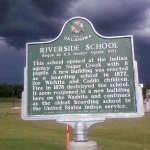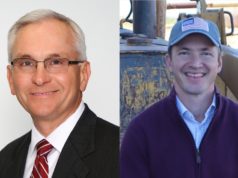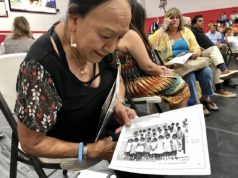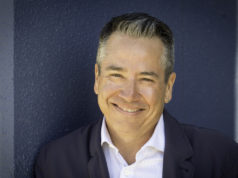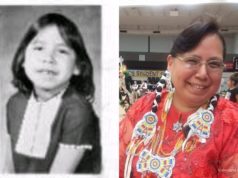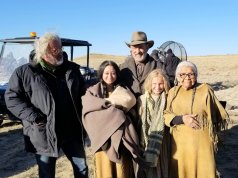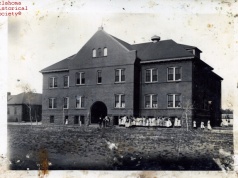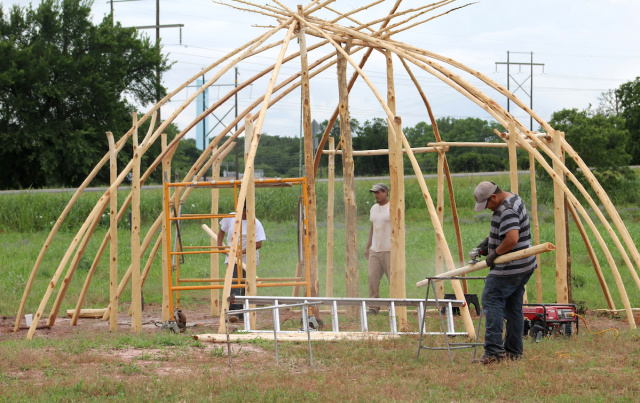
(Editor’s Note: This is the second in a series of stories about an ongoing land dispute between the Wichita, Caddo and Delaware nations in western Oklahoma. The first story can be found here.)
ANADARKO — The Wichita and Affiliated Tribes are building a museum to preserve their heritage, but the Caddo Nation is arguing that the land upon which the Wichitas are building does not actually belong to them.
The Caddo Nation filed a June 7 appeal with the 10th U.S. Circuit Court of Appeals to halt work on the Wichita Historical Center now under construction about one and a-half miles north of Anadarko.
“It all gets down to who has the deed to that land, and no tribe has the deed to that land,” said Tamara Francis-Fourkiller, chairwoman of the Caddo Nation.
The Wichita disagree.
“Make no mistake: The land where the museum site is located is within the Wichita Tribe’s historic homelands,” Wichita President Terri Parton said in a statement. “No group of people has more respect for these lands – or for our ancestors who lived and died in the area – than the Wichita Tribe. It is important to us that a tribal historical center include the rich and often overlooked stories of our people, who have lived here since time immemorial.”
Parton said her tribe wants to honor the land and its people properly.
“There are, you know, a lot of things of our past that are stored up at Norman,” said Shirley Davilla, a member of the Wichita and Affiliated Tribes executive committee and one of the defendants named in the Caddo lawsuit. “We would like to have these in our own place to tell our own story.”

‘A village with replicas’
The Wichita were awarded $800,000 from the Indian Community Block Grant program in 2014 to build a 4,000-square-foot museum to house the tribe’s artifacts and display items of cultural and historical significance. The program is administered by the Office of Native American Programs, part of the U.S. Department of Housing and Urban Development.
A village with replicas of traditional Wichita grass houses and a ground for ceremonial dances is also under construction at the site.
The Wichita worked with what is now the Sam Noble Oklahoma Museum of Natural History in Norman for a collaborative exhibit on the tribe’s archaeology, history and culture that toured several states. The new museum outside Anadarko, across U.S. 281 from the Wichita Tribal Complex and Riverside Indian School, would give the Wichita a place to display this exhibit permanently and to develop others.
The museum would also provide classroom space for educational presentations.
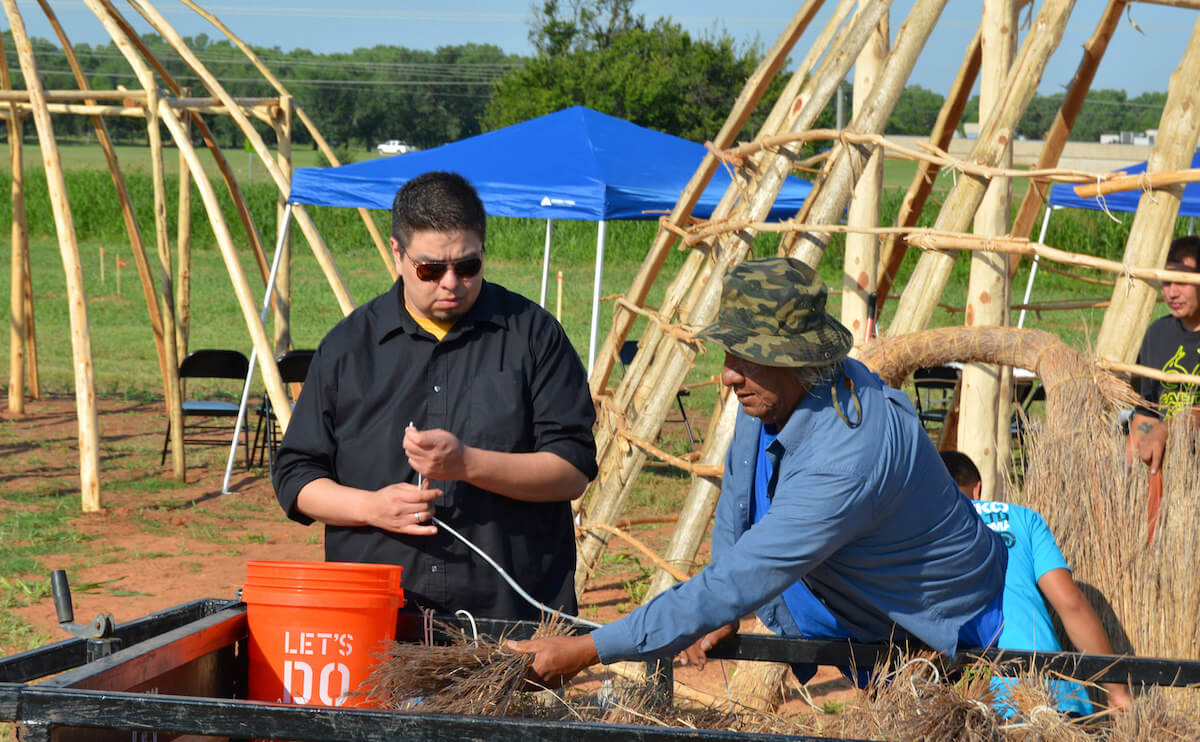
Splitting land splits tribes
Three tribes share the area’s historic land base, which was created when the U.S. government assigned them a reservation together in 1859. The Caddo and a western branch of the Delaware were moved there from reservations in Texas. The Wichita were already there, as archaeological evidence tying them to the region has been found dating back to the year A.D. 800.
RELATED
The Wichita argue they hold title to the 71-acre site by virtue of a 2007 resolution passed jointly by the three tribes to split 600 acres held in common. Under terms of the resolution, the land was to be split according to population. The Caddo, as the largest of the three, received 312 acres. The Wichita received 180, and the Delaware received 108. Although the Wichita have sought to have the title conveyed to them, the Bureau of Indian Affairs remains the site’s legal owner. The BIA holds the land in trust for all U.S. federally recognized tribes. The other tribes have since rescinded their resolutions supporting partition of the land.
Although work was temporarily halted after the Caddo asked federal judge for an injunction, U.S. District Judge Joe Heaton denied their request for a longer stop to construction, lifting his temporary ban May 31. Judge Heaton’s ruling did not address the land ownership dispute, noting that while the matter had not been addressed by the BIA it also was unnecessary to consider in regard to the injunction.
Francis-Fourkiller said the only way to split the land is by an act of the U.S. Congress.
Delaware Nation President Kerry Holton goes further, arguing that by pressing their claims to the museum construction site, the Wichita could lose the travel center they already have.
“They went in and improved someone else’s land,” Holton said.
Holton believes the building site falls under jurisdiction of the WCD Enterprises Board of Trustees. The board was established in 1963 to govern lands held jointly by the three tribes. He said the board governs the land on behalf of the people of each of the three tribes, and not on behalf of the tribal governments.
“They lost sight of what the WCD was supposed to do,” he said.
Not everyone agrees the board has jurisdiction over all of the land. Without question, the board governs the 51-acre site adjacent to the Riverside Indian School site that includes BIA’s Southern Plains Regional Office and some other buildings. The extent to which it has any say over other property held in common by the three tribes remains in question.
According to Parton, the Wichita have “exclusive jurisdiction and governmental authority” over the land.
In a report published in the May 17 edition of the Wichita Tribal News, a tribally owned newspaper, Parton said her tribe will continue to do what it has always done — promote the interests of the Wichita people.
“The Wichita Tribe will continue to proceed with the construction project in an honorable and integral manner — the same manner it has utilized throughout the life of this project and the Travel Plaza previously constructed on this land without incident,” Parton said.
Meanwhile, the Caddo vow to keep fighting to ensure no burials or significant artifacts are lost or damaged due to construction.
“Our membership, and particularly our elders, are upset and angry,” Francis-Fourkiller said.









